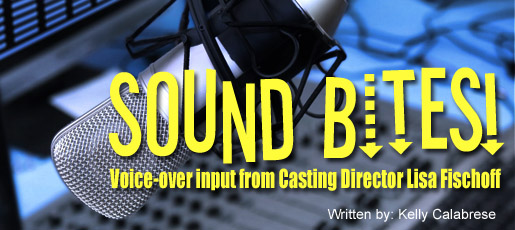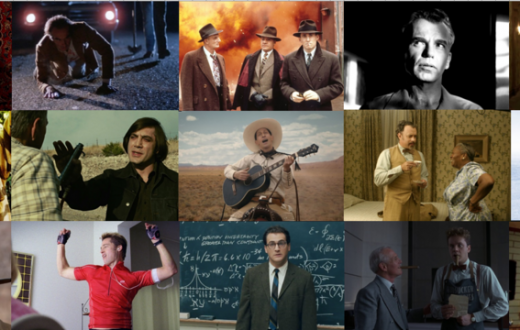We talk a lot about auditioning and the challenges actors face in going out for “job interviews” on a weekly or daily basis. And most actors would probably agree that the one aspect of the audition that is probably the hardest hurdle to overcome is performing a monologue.
As unnatural as it is to perform a chunk of a script out of context and by yourself, doing so cleanly and effectively is vital. It’s your ticket, your hall pass to get you to the next level of the audition process, where you can show the casting team what you are capable of with the actual material you would be performing if you were to be cast.
Sadly though, many people seem to take their monologues for granted, continuing to rehash old pieces from shows they’ve been in, and pieces they’ve used for years. And while we all should have a solid arsenal of memorized monologues ready to go, it takes time and effort to keep it fresh and interesting. So here are a few ideas for how you can create magic with your monologue and get yourself that callback!
1. And now for something completely different
Make an effort to go off the map a bit and seek out a monologue that hasn’t been done a million times by a million actors–perhaps even on the same day and at the same audition you’re attending! There’s just no excuse these days with the availability of so many play and film scripts online for you to still be using the “Lying in a Box” monologue from Rosencrantz and Guildenstern Are Dead or Libby Mae Brown’s speech from Waiting for Guffman. Brilliant as each of these pieces are, the people sitting behind the table have all probably seen them quite enough, thank you very much, and while your take on it may be fantastic, it still comes with heavy baggage attached that puts you at a disadvantage right off the bat. Also avoid using a monologue that is strongly associated with a particular actor. If you try to do a Matt Damon monologue from Good Will Hunting or Quentin Tarantino’s “Like a Virgin” speech from Reservoir Dogs you will be compared with those actors and you will come up short–yes, even compared with Tarantino. Sorry, no matter how well you deliver a well-known monologue like this, you just can’t win. Better to find something you can make your own.
2. Typecast yourself
We all like to think we have the range necessary to play anything from an accountant to a Mafiosi, from age 18 up to 80. But the fact of the matter is we all have certain types that fit us better than others. If you’re a beefy, gruff-looking construction worker type and you try to perform a monologue as a nebbishy character from a Woody Allen film, the incongruity may be interesting, but it will probably work against you at this point in the audition process. You want to pick a monologue that is a slam dunk, a walk-off home run and a touchdown all rolled up in one. There will be time to show your range and give them a creative, twisty take on the material during the callbacks. For now you just want to get your foot in the door for the next step, so perform something that is a good fit. You should walk in the door for a monologue audition utterly confident that you can kill it.
3. Level up
Look for a monologue that has different levels in two senses of the word: first, find something that has an arc and isn’t simply one-note. Sure, it’s fun playing enraged characters, but no one wants to be yelled at for two minutes straight–including casting directors. Find a piece that shows a variety of emotional colors, and one that tells a story. Secondly, look for a piece that has a variety of levels in terms of drama and comedy. If you can demonstrate the ability to play both dramatic notes and comedic notes within the same two-minute piece you are well on your way to getting the callback.
4. Get shorty
There are just so many great words out there, especially when you’ve found a monologue from a piece you really love. The temptation is to use every single second of your allotted time and cram in as many of these beloved words as possible. But the fact of the matter is that most casting directors have already made up their minds in the first ten seconds of your monologue–and perhaps even before you started reading. So do yourself a favor: cut, cut, cut. Be sure you can take your time where you need to rather than trying to barrel through at a breakneck pace in order to finish one second under the allotted time.
5. Button up
The last thing the casting team sees of you as an actor is the end of your monologue piece, so make sure you go out with a bang, not a whimper. Really take the time to find a way to deliver the goods at the end, and make sure you take an extra beat in character to let the piece sink in before you break and thank the casting team. One fun way to grab their attention at the end is to go against the obvious choices the text seems to be leading you toward. If it’s an angry moment, try it with the volume way down. If it’s a sad moment, put on your bravest smile. The monologue audition is your opportunity to direct yourself and to play–take advantage of that and have some fun with it! The confidence to make brave and unlikely choices reads really well to a director who is, after all, looking for partners with whom he or she can collaborate.
6. It’s instrumental
While wandering about aimlessly or creeping “downstage” toward the casting team is a no-no, that doesn’t mean you should be a statue. Engage your whole body and incorporate it into the piece. Human language evolved from wordless communication in the style of our cousins the great apes. In fact, some modern research indicates that up to 90 percent of human communication takes place non-verbally. So don’t be afraid to be a real human being up there–really feel the words and the objectives they indicate for your character and let them infuse your whole body as you tell your story.
The main thing to remember when approaching the monologue audition is that you are trying to show them who you really are. Stay loose and go in with the attitude that you are there to have fun and enjoy this little opportunity to act. Do this consistently and that confidence and the sheer joy that acting brings will translate into callbacks!







